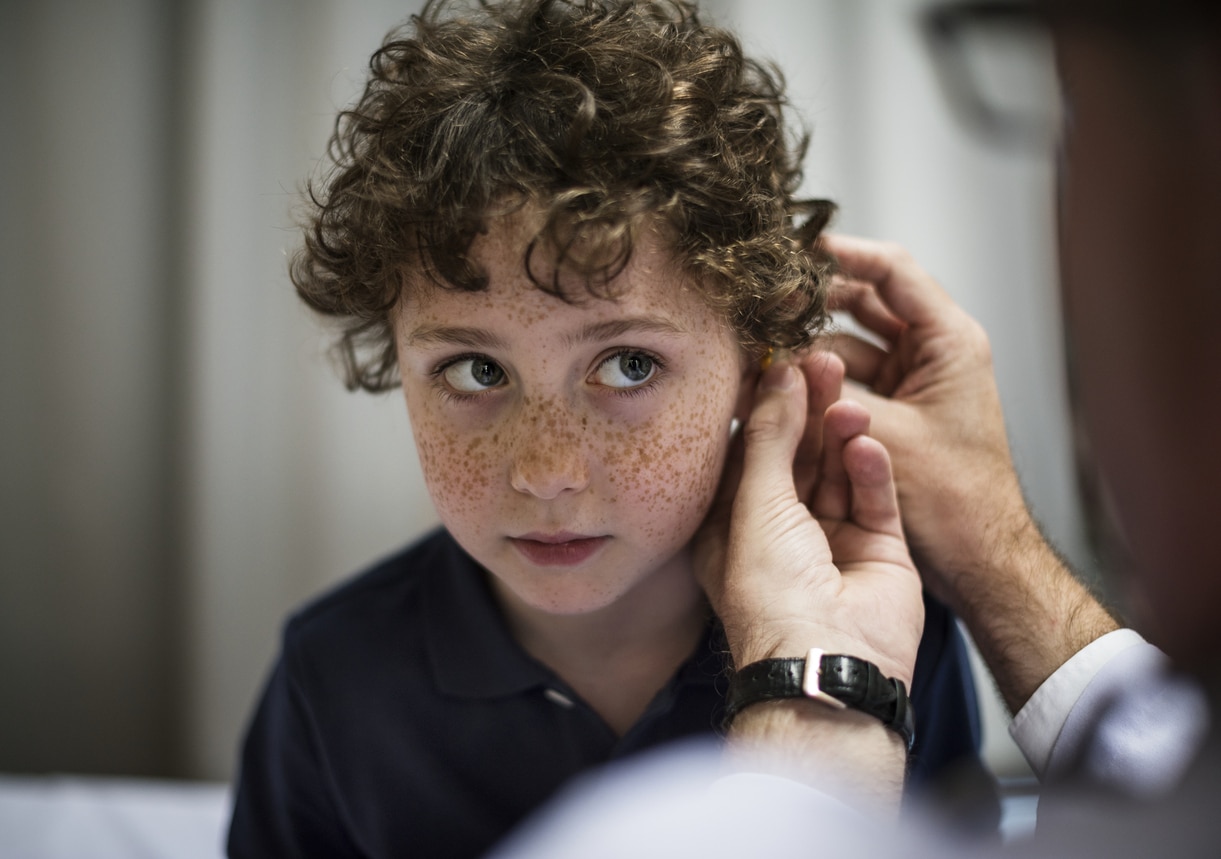Hearing loss can affect a child’s speech, language development and social interactions. Detecting and treating hearing loss early improves language development. It’s vital to spot the symptoms of hearing loss in children promptly to manage and treat the condition effectively.
Types of Hearing Loss

Screening for hearing loss is a routine part of pediatric care, with babies tested at birth and periodic hearing checks recommended up to the age of 10.
There are two primary types of hearing loss:
- Conductive Hearing Loss: This type occurs when an obstacle or damage in the outer or middle ear impedes sound from reaching the inner ear. Fluid in the middle ear from colds, ear infections (otitis media), dysfunctional Eustachian tubes, or a torn eardrum are common causes.
- Sensorineural Hearing Loss: This type is caused by damage to the inner ear or to the nerve pathways from the inner ear to the brain. The damage can be due to genetic reasons, prolonged exposure to loud noise, infections or birth-related issues.
Severity of Hearing Loss
The extent of hearing loss can vary widely. Mild hearing loss might lead to missing 25% – 40% of speech sounds, complicating the understanding of words. Profound hearing loss may mean that only very loud noises are perceivable, if at all. For toddlers and young children, even slight hearing loss is significant as it can hinder their ability to acquire language. Hearing aids and speech therapy are common treatments for mild hearing loss to support language skill development.
Signs of Hearing Loss in Children
A child might be exhibiting hearing loss if they show specific signs at certain developmental stages:
Babies (0-12 months)
- Lack of reaction to loud sounds
- No turning towards sound sources by six months
- Not saying simple words like “mama” or “dada” by their first birthday
Toddlers (1-3 years)
- Delays in speech and language development
- Often asking “what?” or “huh?”
- Turning the television volume up too high
- Showing frustration in noisy settings like Sandy Bottom Park Playground
Young Children (3-5 years)
- Not responding when called
- Unclear speech
- Misinterpreting questions and responding inappropriately
- Appearing inattentive
Treatment Options
Observing any of these signs should prompt a visit to the pediatrician. Early intervention is crucial and can vary from fitting hearing aids to conducting surgical procedures depending on the hearing loss’s nature and severity.
Addressing hearing loss early gives children the best opportunity to develop vital speech and language abilities and to thrive in social and educational environments. To learn more about promoting healthy hearing for your child, contact Hampton Roads ENT ~ Allergy to schedule an appointment today.
